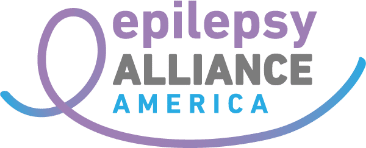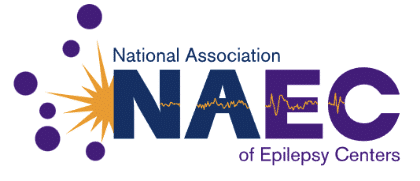Important Safety Information
EPRONTIA ® (topiramate) oral solution, 25 mg/mL
EPRONTIA is indicated for:
- Initial monotherapy for the treatment of partial-onset or primary generalized tonic-clonic seizures in patients 2 years of age and older.
- Adjunctive therapy for the treatment of partial-onset seizures, primary generalized tonic-clonic seizures, or seizures associated with Lennox-Gastaut syndrome in patients 2 years of age and older.
- Preventive treatment of migraine in patients 12 years of age and older.
Inform patients that a calibrated measuring device is recommended to measure and deliver the prescribed dose accurately. A household teaspoon or tablespoon is not an adequate measuring device.
Additional Important Safety Information
Warnings and Precautions:
Acute Myopia and Secondary Angle Closure Glaucoma Syndrome: A syndrome consisting of acute myopia associated with secondary angle closure glaucoma has been reported in patients receiving EPRONTIA (topiramate). Symptoms include acute onset of decreased visual acuity and/or ocular pain. Ophthalmologic findings can include some or all of the following: myopia, mydriasis, anterior chamber shallowing, ocular hyperemia (redness), choroidal detachments, retinal pigment epithelial detachments, macular striae, and increased intraocular pressure. This syndrome may be associated with supraciliary effusion resulting in anterior displacement of the lens and iris, with secondary angle closure glaucoma. Symptoms typically occur within 1 month of initiating EPRONTIA therapy. The primary treatment to reverse symptoms is discontinuation of EPRONTIA.
Visual Field Defects: Visual field defects have been reported in clinical trials and in post-marketing experience in patients receiving topiramate. In clinical trials, most of these events were reversible after topiramate discontinuation. If visual problems occur, consideration should be given to discontinuing the drug.
Oligohidrosis and Hyperthermia: Oligohidrosis (decreased sweating), infrequently resulting in hospitalization, has been reported in association with EPRONTIA use. The majority of the reports have been in pediatric patients. Patients, especially pediatric patients, should be monitored closely for evidence of decreased sweating and increased body temperature, especially in hot weather. Caution should be used when EPRONTIA is prescribed with other drugs that predispose patients to heat-related disorders; these drugs include, but are not limited to, other carbonic anhydrase inhibitors and drugs with anticholinergic activity.
Metabolic Acidosis: Metabolic acidosis was commonly observed in adult and pediatric patients in clinical trials and is caused by renal bicarbonate loss due to carbonic anhydrase inhibition by EPRONTIA. Conditions or therapies that predispose patients to acidosis (such as renal disease, severe respiratory disorders, status epilepticus, diarrhea, ketogenic diet, or specific drugs) may be additive to the bicarbonate lowering effects of EPRONTIA. Topiramate treatment that causes metabolic acidosis during pregnancy can possibly produce adverse effects on the fetus and might also cause metabolic acidosis in the neonate from possible transfer of topiramate to the fetus. Baseline and periodic serum bicarbonate measurements are recommended during EPRONTIA treatment. If metabolic acidosis develops and persists, consideration should be given to either dose reduction or discontinuation of therapy using dose tapering.
Suicidal Behavior and Ideation: Antiepileptic drugs (AEDs), including EPRONTIA, increase the risk of suicidal thoughts or behavior in patients taking these drugs for any indication. Patients treated with any AED should be monitored for the emergence or worsening of depression, suicidal thoughts or behavior, and/or any unusual changes in mood or behavior.
Cognitive/Neuropsychiatric Adverse Reactions: EPRONTIA can cause cognitive/neuropsychiatric adverse reactions. The most frequent of these can be classified into 3 categories: 1) cognitive-related dysfunction (eg, confusion, difficulty with concentration, difficulty with memory, speech or language problems); 2) psychiatric/behavioral disturbances (eg, depression or mood problems); and 3) somnolence or fatigue.
Fetal Toxicity: EPRONTIA can cause fetal harm when administered to pregnant women. The benefits and risks should be considered when administering this drug in women of childbearing potential.
Withdrawal of Antiepileptic Drugs: EPRONTIA should be gradually withdrawn to minimize the potential for seizures or increased seizure frequency. If rapid withdrawal is required, appropriate monitoring is recommended.
Decrease in Bone Mineral Density: EPRONTIA has been shown to decrease bone mineral density (BMD) and bone mineral content in pediatric patients. Decreased BMD was correlated with decreased serum bicarbonate, which commonly occurs with topiramate treatment and reflects metabolic acidosis, a known cause of increased bone resorption.
Negative Effects on Growth (Height and Weight): Negative effects on height and weight have been seen in pediatric patients receiving topiramate treatment. EPRONTIA may slow height increase and weight gain; carefully monitor children receiving prolonged topiramate therapy.
Serious Skin Reactions: Serious skin reactions (Stevens-Johnson Syndrome [SJS] and Toxic Epidermal Necrolysis [TEN]) have been reported in patients receiving topiramate. EPRONTIA should be discontinued at the first sign of a rash, unless the rash is clearly not drug-related. If signs or symptoms suggest SJS/TEN, use of this drug should not be resumed and alternative therapy should be considered. Inform patients about the signs of serious skin reactions.
Hyperammonemia and Encephalopathy (Without and With Concomitant Valproic Acid Use): EPRONTIA treatment can cause hyperammonemia with or without encephalopathy, the risk of which appears to be dose-related, and which has been reported more frequently with concomitant use of valproic acid. In patients who develop unexplained lethargy, vomiting, or changes in mental status associated with topiramate, hyperammonemic encephalopathy should be considered and an ammonia level should be measured.
Kidney Stones: EPRONTIA can cause an increased risk of kidney stones. The concomitant use of topiramate with any other drug producing metabolic acidosis, or potentially in patients on a ketogenic diet, may increase the risk of kidney stone formation. An increase in urinary calcium and a marked decrease in urinary citrate have been observed in topiramate-treated pediatric patients. This increased ratio of urinary calcium/citrate increases the risk of kidney stones and/or nephrocalcinosis. Instruct patients to stay well hydrated while taking EPRONTIA.
Hypothermia With Concomitant Valproic Acid Use: Hypothermia has been reported in association with topiramate use with concomitant valproic acid both in conjunction with hyperammonemia and in the absence of hyperammonemia. Consider discontinuation of topiramate or valproate in patients who develop hypothermia. Clinical management should include examination of blood ammonia levels.
Adverse Reactions:
The most common adverse reactions associated with EPRONTIA include:
- Paresthesia
- Anorexia
- Nausea
- Taste perversion
- Diarrhea
- Weight loss
- Nervousness
- Upper respiratory tract infection
- Speech problems
- Fatigue
- Dizziness
- Somnolence
- Psychomotor slowing
- Difficulty with memory
- Abdominal pain
- Fever
- Abnormal vision
- Hypoesthesia
Use in Specific Populations
Pregnancy
Topiramate can cause fetal harm when administered to a pregnant woman. Small for gestational age (SGA) has been observed at all doses and appears to be dose-dependent. Patients should be encouraged to enroll in the North American Antiepileptic Drug (NAAED) Pregnancy Registry if they become pregnant. This registry collects information about the safety of antiepileptic drugs during pregnancy. To enroll, patients can call the toll-free number 1-888-233-2334. Information about the North American Drug Pregnancy Registry can be found at http://www.aedpregnancyregistry.org/.
Lactation
Topiramate is excreted in human milk. The effects of topiramate on milk production are unknown. The developmental and health benefits of breastfeeding should be considered along with the mother’s clinical need for topiramate and any potential adverse effects on the breastfed infant from topiramate or from the underlying maternal condition.
Women of Reproductive Potential
Women of childbearing potential who are not planning a pregnancy should use effective contraception because of the risks of oral clefts and SGA.
Renal Impairment
The clearance of topiramate is reduced in patients with moderate (creatinine clearance 30 to 69 mL/min/1.73 m2) and severe (creatinine clearance <30 mL/min/1.73 m2) renal impairment. A dosage adjustment is recommended in patients with moderate or severe renal impairment.
Patients Undergoing Hemodialysis
Topiramate is cleared by hemodialysis at a rate that is 4 to 6 times greater than in a normal individual. A dosage adjustment may be required.
The Important Safety Information does not include all the information needed to use EPRONTIA safely and effectively. Visit EPRONTIA.com for full prescribing information.
To report SUSPECTED ADVERSE REACTIONS, contact Azurity Pharmaceuticals, Inc., at 1-800-461-7449 or FDA at 1-800-FDA-1088 or www.fda.gov/medwatch.
HCP-EPR-1.8







